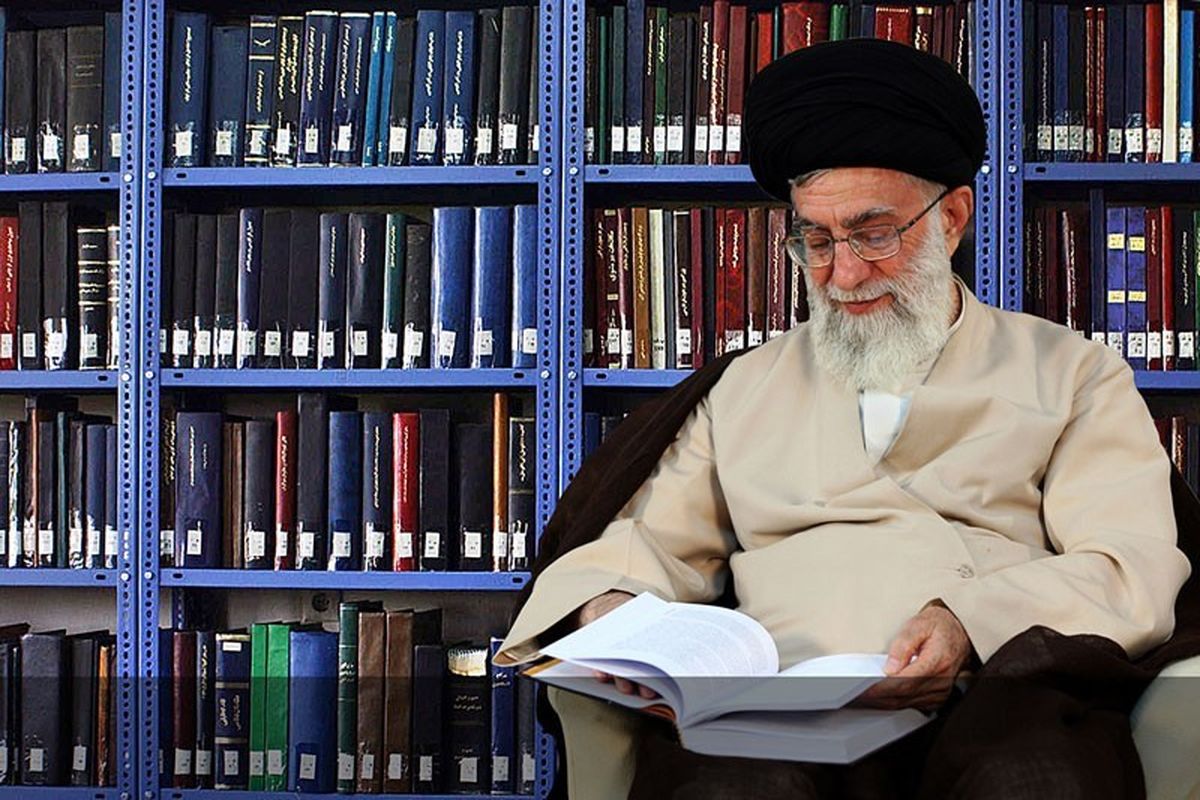The Arabic editions of Leader's books unveiled in Lebanon
The Arabic editions of 8 books of the Leader of Islamic Revolution unveiled in Lebanon.

MojNews-The Arabic editions of 8 books of the Leader of Islamic Revolution unveiled in Lebanon.
The Cultural Attaché Office of Iran in Lebanon has released eight Arabic books by the Leader, with a focus on the role of Muslim women.
The titles include "Modesty and Hijab in Islamic Iranian Lifestyle," "The Role Model of Women," "Women and Family," and "The Position and Issues of Women in Islamic Culture and Modernity."
Additionally, the list features titles like "Two Mujahid Imams," "Discourse on Patience," "The Epic of Imam Sajjad (AS)," and "Cultural Bases."
"Modesty and Hijab in Islamic Iranian Lifestyle" attempts to carefully study, extract, and present all of the Leader's speeches in five chapters with the titles of "Modesty and Chastity," "Relationships between Men and Women," "Hijab and Dress Code," "Unveiling and Decadence," and "Dealing with Decadence."
In the process of extracting, collecting, and categorizing the Leader's speeches, all of his speeches and messages about women from the beginning of the victory of the Islamic Revolution until 2013, including speeches that have not been widely covered by the media, such as the recommendations they made to young people during marriage sermon readings, have been examined. These speeches were found in the archives of the Leader's office and their extensive volume demonstrates the Leader's attention and concern for women's issues.
"The Role Model of Women” carefully extracts all of the Leader's speeches in various dimensions and in accordance with the needs of today in thirteen sections with titles such as: "The Importance of Presenting a Correct Role Model in Human Life," "Fatemeh Zahra (SA), the Comprehensive Model of Women and Human Life," "Fatemeh Zahra (SA) and the Family Sphere," "Fatemeh Zahra (SA) and the Political and Social Struggle," "Fatemeh Zahra (SA) and the Sphere of Spiritual Knowledge," "Fatemeh Zahra (SA) and the Sphere of Worship," "The Greatness and Perfections of Fatemeh Zahra (SA)," "The Ashura Model of Women," "Quranic Models of Women," "Becoming an Iranian Muslim Woman."
In “Women and Family”, the Leader pays attention to the central role of the family in discussions about women, taking into account the legal and social aspects.
This book aims to extract the Leader's viewpoints on marriage and family with a focus on women.
"The Position and Issues of Women in Islamic Culture and Modernity” highlights the importance of paying attention to women's issues according to the Leader's viewpoint. He believes in prioritizing women's issues in order to address the historical oppression of women with a fundamental movement - an oppression that has existed for women in family and society, in the East and the West, from the past until now.
The current dangerous situation they face in the West, marked by the distortion of women with slogans of freedom and the destabilization of family status and economic exploitation of women.
On the other hand, by presenting a comprehensive and complete view of Islam regarding women, women can be elevated to their rightful high position and human dignity. In Islam, while recognizing the differences between men and women, their equality in the realms of human perfection is emphasized.
In this book, the statements of the Leader are presented thematically and titled, covering three chapters: the importance and roots of women's issues, women in Western culture, and the status and position of women in Islamic thought.
“Two Mujahid Imams” includes six speeches by the Leader, analyzing the political struggles of Imam Hassan and Imam Hussein. The first two speeches in the book are from his lectures given in 1972.
In these two sessions, the Leader, in addition to explaining the theory of the "250-year-old human," discusses the high and important position of Imam Hassan (AS) during that period, the reasons for avoiding war and accepting a ceasefire, and highlights the differences between the conditions of Imam Hassan (AS) and Imam Hussein (AS). The third to fifth speeches in the book are dedicated to three lectures given by the Leader in Mashhad in 1973. The theme of these lectures is the "analysis of the uprising of Imam Hussein."
In the fourth speech, the goals of the uprising of Imam Hussein are discussed, and to clarify the subject, the roots of those goals are analyzed. In the fifth speech, after briefly reviewing the topics of the previous two speeches, the Leader refers to the era of Imam Hussein and his actions, presenting a comprehensive and documented discussion on this matter.
The perspective of the Leader in these six speeches is very unique, even though they were delivered when he was 32 and 33 years old. Numerous authentic and historical sources have been used in his speeches, making them different from ordinary speeches of that time and even the present, resembling more academic and scholarly sessions.
"Discourse on Patience" includes one of the Leader's speeches in Mashhad in 1973, in which he discussed the hadith of Makarim al-Akhlaq. In this hadith, ten qualities of the prophets are mentioned. The Leader, while explaining these qualities, had a special focus on dispelling misconceptions about these fundamental teachings, especially in the minds of the youth. By redefining these qualities with a revolutionary approach that existed within these concepts, he aimed to make revolutionary youth more deeply rooted in Islamic struggles.
One of these qualities, mentioned as the third quality in the narration, is "patience." The concept of "patience" had been subject to misconceptions. At the beginning of this discussion, the Leader bravely and ambiguously states that our society is under the rule of oppressors, and the misunderstanding of the concept of patience has led to more opportunities for the oppressors to perpetrate injustices.
He sees this understanding of "patience" as being completely contrary to Quranic and narrational teachings in this regard. The Leader explains the three types of patience: patience in performing obligations, patience in refraining from committing sins, and patience in times of calamity. By using religious teachings and historical evidence, he emphasizes the greater importance of the second type of patience.
Furthermore, he concludes this section by criticizing those who seek comfort and have abandoned the struggle, and by discussing the method of strengthening this type of patience in the face of calamities. The final part of the book is dedicated to discussing the worldly effects and benefits of patience, strengthening the motivation necessary for enduring difficulties and hardships in the audience through historical examples.
"The Epic of Imam Sajjad (AS)" consists of speeches by the Leader on the political and cultural struggles of Imam Sajjad (AS). The book is divided into three sections. The first section includes the speech of the Leader at the International Congress of Imam Reza. In this speech, delivered in 1986, he addresses the theory of the 250-year human.
The main part of the book focuses on four speeches by the Leader regarding the political and cultural struggles of Imam Sajjad (AS).
"Cultural Bases” contains the texts of the two meetings of the Leader at cultural bases that have been created to confront the enemy's cultural confrontation, cultural invasion and soft war.
The most important and fundamental points, the details, and intricacies, in a way that truly applies to the field of action and implementation, are discussed in these speeches. Those who engage in the field of culture are people of precision and attention, and with a little of this attention, in every topic and sentence of this text, they find valuable and necessary lessons for their own cultural activities and their organization.





Add Comment